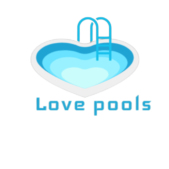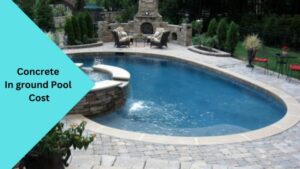Are you dreaming of basking in the sun beside your own luxurious in-ground pool? The allure of a beautiful swimming pool right in your backyard is hard to resist. However, before taking the plunge, it’s important to understand the cost implications. In this comprehensive guide, we will explore the factors that affect the cost of a concrete inground pool and provide valuable insights into what you need to know. We’ll dive into topics such as the cheapest inground pool option, the amount of concrete required, the standard amount of concrete around a pool, and even provide a realistic cost estimate for a 12×24 inground concrete pool. So, let’s take the first step towards making your backyard oasis a reality!
- Factors Affecting the Cost of an Inground Concrete Pool
- Understanding the Pricing Breakdown
- The Cheapest Inground Pool Option: Is It Right for You?
- How Much Concrete Is Needed for an Inground Pool?
- Determining the Standard Amount of Concrete Around a Pool
- Realistic Cost Estimate: How Much Does a 12×24 Inground Concrete Pool Cost?
- Conclusion
Factors Affecting the Cost of an Inground Concrete Pool
When it comes to determining the cost of an inground concrete pool, several factors come into play. It’s essential to consider these factors to get a clear understanding of how much you can expect to invest. Let’s explore these factors in detail:
-
Pool Size and Shape
The size and shape of your pool play a significant role in determining the overall cost. Larger pools naturally require more materials, labor, and excavation work. Complex shapes and designs may also add to the expenses, as they require meticulous planning and skilled craftsmanship.
-
Site Conditions
The condition of your site can impact the cost of installing an inground concrete pool. If your yard has challenging terrain, such as rocky soil or a slope, it may require additional excavation and preparation work. Access to the site can also influence the cost, especially if it poses challenges for heavy machinery or construction equipment.
-
Customization and Additional Features
Every homeowner has unique preferences and aspirations for their pool. Customization options such as waterfalls, spas, slides, or intricate tiling can significantly affect the cost. Moreover, additional features like lighting, heating, and automation systems can enhance your pool experience but come with their own price tags.
-
Pool Accessories
Don’t forget to consider the cost of pool accessories that are necessary for safety, maintenance, and enjoyment. This includes items like pool covers, cleaning equipment, filtration systems, and water treatment products. These accessories are crucial for the long-term functionality and aesthetics of your pool.
Also for you : Unveiling the Wonders of Inground Pool Handrails: A Complete Guide
-
Labor Costs
The cost of skilled labor for pool construction can vary depending on location and seasonal demand. It’s important to work with experienced professionals who specialize in concrete pool installation to ensure quality workmanship. Remember to account for labor costs when estimating the overall expenses.
-
Location
The location of your property can also influence the cost of an inground concrete pool. Construction and material costs can vary from one region to another, so it’s important to research local prices. Additionally, if you live in an area with a higher cost of living, expect the overall expenses to be on the higher side.
Understanding the Pricing Breakdown

To get a better idea of the pricing breakdown, let’s consider a hypothetical scenario. Imagine you’re looking to build a medium-sized, rectangular pool in an average location with standard customization and accessories. Here’s how the costs might typically break down:
- Excavation and Site Preparation: 10%
- Materials (Concrete, Rebar, etc.): 40%
- Construction and Labor: 35%
- Customization and Accessories: 15%
Keep in mind that these percentages may vary based on factors like your specific requirements, location, or any additional features you desire. Consulting with pool contractors will give you a more accurate breakdown based on your unique circumstances.
The Cheapest Inground Pool Option: Is It Right for You?
While the primary focus is often on the cost, it is crucial to assess whether the cheapest inground pool option is the right choice for you. Budget-friendly alternatives such as vinyl or fiberglass may appear more affordable initially, but it’s vital to consider long-term costs and maintenance.
Vinyl pools, for instance, require periodic liner replacements, which can add up over time. Fiberglass pools offer limited customization options and can be expensive to repair if any damage occurs. Concrete pools, although initially more expensive, provide durability, flexibility in design, and long-term value.
Consider your priorities, preferences, and long-term goals before settling for the cheapest option. Investing in a concrete pool may provide you with a higher return on investment and greater satisfaction in the long run.
Also, Read What are Gunite and Shotcrete? A Comprehensive Guide
How Much Concrete Is Needed for an Inground Pool?
The amount of concrete needed for an inground pool depends on various factors such as the pool’s size, depth, shape, and the thickness of the walls and floor. To estimate the quantity of concrete required, it’s essential to consult with a pool contractor who can analyze your specific pool design.
The contractor will consider factors such as the width and length of the pool, the height of the walls, and the thickness of the floor. Using these measurements, they can calculate the volume and recommend the amount of concrete needed, ensuring a strong and durable pool structure.
Determining the Standard Amount of Concrete Around a Pool
The amount of concrete surrounding a pool, also known as the pool deck, is as important as the pool itself. It provides support, aesthetics, and safety. The standard amount of concrete required for the deck varies based on factors like the pool size, shape, and design preferences. However, a general rule of thumb is to have a deck that is at least 4 to 8 feet wide around the pool perimeter.
By having a sufficient deck space, you can enhance the functionality and visual appeal of your pool area. It provides ample room for poolside furniture, facilitates easy movement, and promotes safety for pool users. Working closely with your pool contractor, you can determine the ideal amount of concrete needed to create a beautiful and functional pool deck.
Realistic Cost Estimate: How Much Does a 12×24 Inground Concrete Pool Cost?
As you explore the cost of an inground concrete pool, let’s delve into a specific example. A common pool size requested by homeowners is 12×24 feet. Keep in mind that the expenses involved can vary based on the factors mentioned earlier. However, this example will give you a ballpark estimate of what to expect.
For a 12×24 feet concrete pool, the average cost can range from $35,000 to $60,000. This estimate includes the excavation, materials, construction, labor, basic customization, and pool accessories. It’s important to note that this is a starting point, and additional features or customizations will increase the overall cost.
To get an accurate estimate for your specific pool design, it is recommended to consult with reputable pool contractors who can provide detailed quotes based on your requirements and location.
Conclusion
Building an inground concrete pool offers a magical oasis for creating everlasting memories with family and friends. While the cost may seem daunting, understanding the factors that affect pricing and planning accordingly can ensure a successful and rewarding investment. Remember to evaluate your priorities, research local costs, and engage with professional pool contractors to get accurate estimates.
Now that you have a comprehensive understanding of the costs involved, you can confidently embark on your journey to make your dream pool a reality. Dive into the details, explore your options, and transform your backyard into a personal paradise. Get started today!

Greetings, fellow pool enthusiasts! I’m Turner Davis, your dedicated guide to the world of pool care and maintenance. With over a decade of experience in the field, I’ve made it my mission to transform ordinary pools into extraordinary aquatic retreats.

